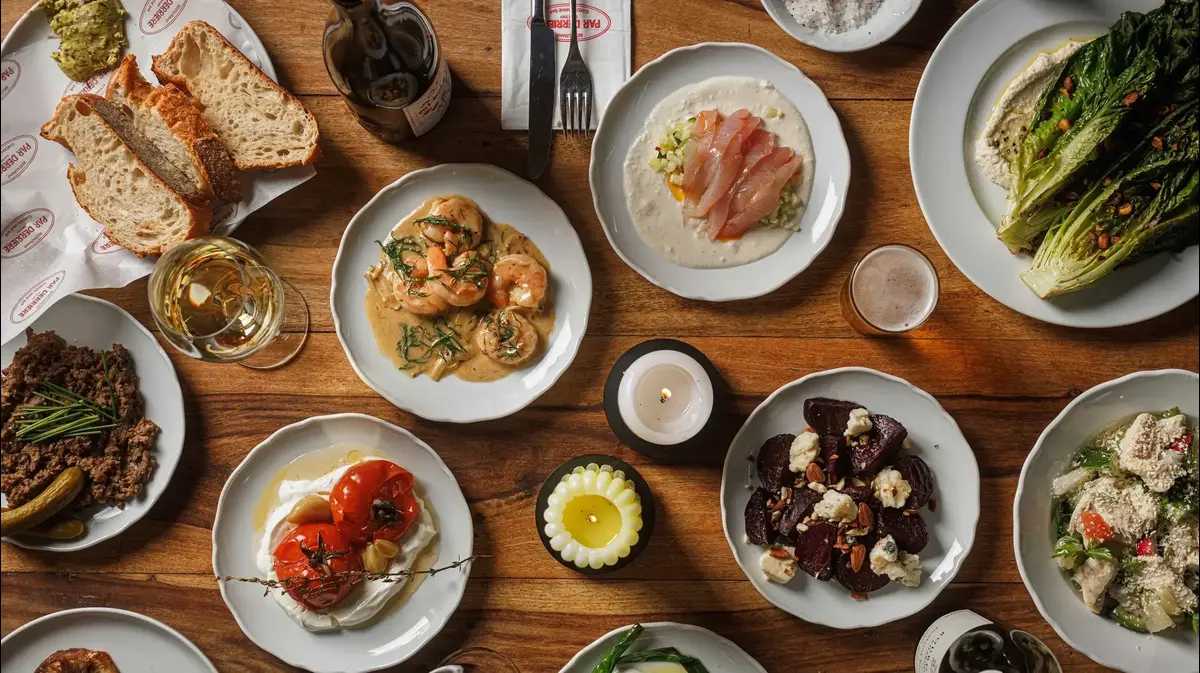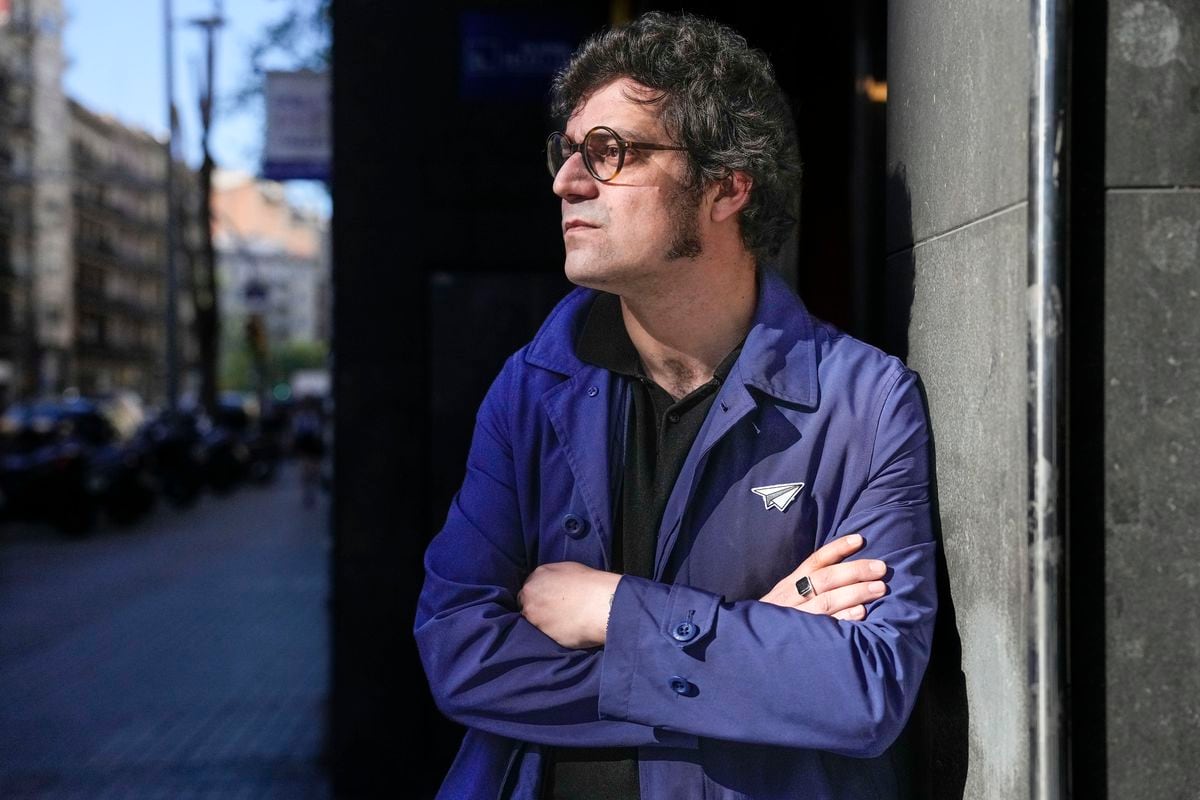Talent and generosity do not always go hand in hand, but they managed to walk side by side in the life of Spanish chef Luis Irizar (1930-2021). The father of the New Basque Cuisine, master of masters, did not spare a gram in either of the two qualities and gave himself entirely to his two passions: cooking and teaching. His discreet but resounding work as an instructor of the following generations left behind a trail of disciples who cannot and do not want to part with the professional and human legacy they inherited from him. Such was his imprint. On Tuesday, many of them gathered at the Ekilorerestaurant in Mexico City, run by Basque chef Pablo San Román, to give him a fair farewell and celebrate what would have been his 93rd birthday.
"Luis Irizar was not only a teacher, a generator of great successes, but rather a recognition of the power of the human being," San Román opened the tribute before a dozen colleagues dressed in their white kitchen coats: a homogeneity only interrupted by the traditional clothing of the Oaxacan cook Abigail Mendoza. "We probably all have different styles, but he gives us the opportunity to have something in common: we have all been touched in some way by his infinite kindness," San Roman said.
Irizar was born in Havana (Cuba) and died in Spain, in San Sebastian, in the middle of the pandemic. They could hardly say goodbye to him, especially in Latin America. "In the distance from Mexico, we are left with a cold feeling and with the pending task of bringing this community together," they have justified.
From right to left: Jorge Córcega, Pablo San Román, Benito Molina, Abigaíl Mendoza, Mikel Alonso, José Cholizabeta, Paulina Morel, Luis Enrique Mercado, Edgar Delgado and Iñaki Andradas, on Tuesday. Rodrigo Oropeza
Pablo San Román landed in the Latin American country in 1994 and founded the Sukalde association in the capital, of which Irizar would be mentor and honorary president. There began a history of transatlantic brotherhood that has been maintained through the decades and that has brought together chefs from both countries for the occasion. "We sent Mexican students to Luis' school in San Sebastian, and he sponsored the community we had here and sent chefs back," San Roman summarizes.
Irizar pushed the frontiers of regional gastronomy until they disappeared completely. He trained in France, England and Switzerland, but the total attachment to his land took him back home, where he dedicated himself to teaching the youngest the trade that gave meaning to his life. Far from the frills, he always defended a sober and traditional cuisine, based on the roots. "In no case can modernities cover the contents of the dish," he made clear in an interview with EL PAÍS in 2014. Many have followed his path afterwards. "When I saw what they did in the Basque Country and returned home, I embraced what I was doing to share it with the world. That's what drives a great master," extols Zapotec chef Abigail Mendoza.
Chef Luis Irizar, in an interview screened during his posthumous tribute. Rodrigo Oropeza
The place where the chefs are arranged in a row, integrated into the Basque Centre, emulates the simplicity of a Basque tavern of a lifetime. In the center of the tables, made of wood, the mythical green rug used for the timbas of cards is perfectly incorporated. On the shelf that surrounds the side of the room you can still see the chips of the last mus competition, and various murals with Basque motifs have taken over much of the wall.
No one in the room questions the brilliance of Irizar's work, but that is not what demands the attention of the participants, but their human warmth. "The product or the technique were the great excuses for you to get universal values every day," recalled the Spaniard Mikel Alonso, who defines himself as "Basque at heart and Mexican by conviction." Of all these values, the definitive mark was left by his ability to convey the importance of continuing to teach those who come behind. "The secret recipe does not exist, you have to share knowledge," said Mexican Benito Molina.
A traditional Basque choir, during the posthumous tribute to chef Luis Irizar at the Centro Vasco-Euskal Etxea in Mexico City on the 30th.Rodrigo Oropeza
The central part of the tribute, however, occurs shortly after in the lower area of the establishment, in the courtyard located in front of the pediment. The Eragiyok choir, from San Sebastian, opens this second part of the event by singing the Agur Jaunak, a Basque ceremonial song that serves to welcome or say goodbye to a loved one. It is followed by the agurra dance, performed by the dancer Aritz Salamanca, a sign of respect for the honoree; and closes the Basque shortlist a video in which Luis Irizar himself narrates the most important events of his life to chef Íñigo Lavado, where the testimonies of the people who passed through his life and learned from him are interspersed.
The sound tribute does not end until a group of mariachis sings the famous Mexican song Las mañanitas, a birthday greeting that reminds us that this farewell is, in reality, a celebration party. "That every May 30 we can remember him, especially to remind ourselves of the good we can give of ourselves," San Roman has launched.
The event closes in the only possible way: with a culinary display that brings together the best of the two cultures convened in the farewell. In reality, they are not so different, says Alonso: "There are only two types of gastronomy, good and bad. If we want to be part of the good one, we must join forces and move forward." The show must go on. Thank you, Irizar, eskerrik asko for everything.
The flags of Mexico and the Basque Country on a wall of the Centro Vasco-Euskal Etxea, in Mexico City, during the tribute. Rodrigo Oropeza
Subscribe hereto the newsletter of EL PAÍS Mexico and receive all the informative keys of the news of this country







/cloudfront-eu-central-1.images.arcpublishing.com/prisa/WT5BBUFX4FCD5HOYEGBOT2NYFY.jpg)
/cloudfront-eu-central-1.images.arcpublishing.com/prisa/3HRR2JWD2RHM3LA7C5552NJYKM.jpg)






